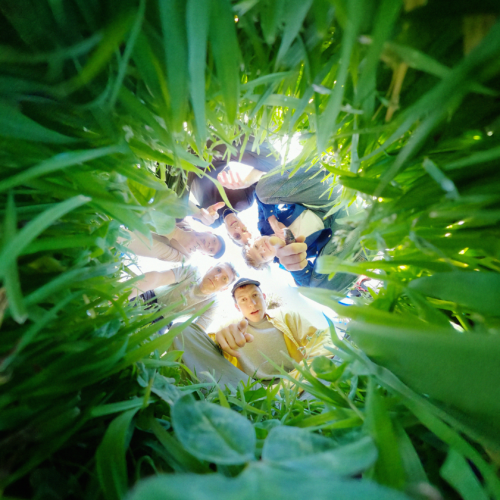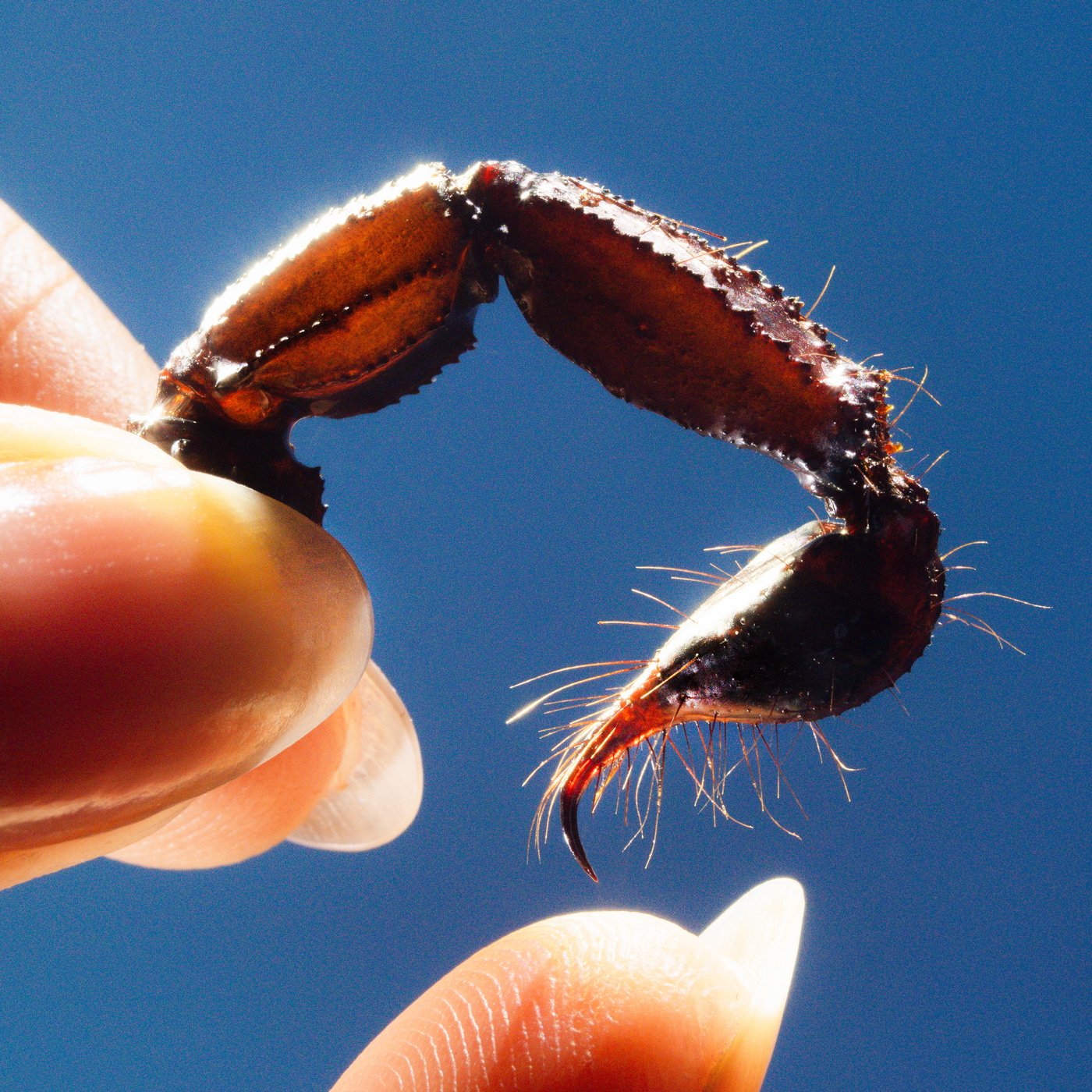
Cowards
—
Release on 07 February 2025
—
Warp



Squid’s new album Cowards is about evil. Nine stories whose protagonists reckon with cults, charisma and apathy. Real and imagined characters wading into the dark ocean between right and wrong. Singer and drummer Ollie Judge explains that he used to notice “real life things that I saw on the street. People I knew and people that I’d met” but somewhere between their last album and today, this lived social commentary gave way to an imagined world that felt more real. An avid reader, Judge was drawn more and more to the cult fiction section of book shops, falling into “bleak books about horrid murderers” such as Lapvona by Ottessa Moshfegh, or In The Miso Soup by Ryū Murakami. The smokescreen of digital narcissism is present here, as Judge adds “a lot of the album deals with the idea of sleepwalking into a world of complacency”.
Cowards is Squid’s most courageous album: simultaneously growing in scope and returning to basics. Guitarist Louis Borlase states “we were thinking of an album of great songwriting. Simple ideas that resonate in a very different way to O Monolith, which was dense and complex.” Whilst their previous two records have dealt with quintessentially British themes lyrically and sonically, Cowards sees the band looking outward. Something Judge credits to touring: “it’s all fed into this record in a way that I didn’t initially realise. Every song has a specific place anchored to it, places that all five of us have visited together, like New York, Tokyo and Eastern Europe.” Judge also points out the similarity to the characters in Springsteen’s 1982 solo record Nebraska, an album that is “largely written about evil people but peppered with fleeting moments of redemption”.
Squid see Cowards as the album they wish they’d started with, but it takes a long time to forge the sort of musical relationship that makes a record like this possible. Bassist and cornetist Laurie Nankivell explains, “it’s fucking difficult, it takes many years to figure out a collective language you can share with five of us, and we have managed that musically, to feed off each other.” It’s a long process where every note is written and worked on together, in-person, giving their music a kinetic charge as musical conversations between each member coalesce. Hard work? “Yes”, he continues with a giddy excitement, but “we know it’s our best record yet.”
A lot of this energy was devoted to establishing new sonic motifs for the record, and whilst the choice to include more acoustic instruments than before was straightforward, there is always room for playful invention in Squid, as keyboardist and cellist Arthur Leadbetter recalls “I sampled a harpsichord and turned it into a virtual instrument for the sequence in Well Met. And sampled timpani and adapted that for Showtime!” They even recorded the spokes of Nankivell’s bike to lend an eerie atmosphere to album closer Well Met. These gestures playfully bridge the gap between their instruments, bricolage and production.
Outside of their space in Lewisham, the record was written at Warp’s demo room in Gospel Oak and live improvised residencies in Margate and Falmouth where the band evolved their embryonic material at key independent venues Elsewhere? and The Cornish Bank respectively. When the writing was done, the band headed to Church Studios in Crouch End to work with Mercury prize winning producer Marta Salogni and Grace Banks for the first time. Judge recalls the sessions were “quite intense. We started writing in November 2022 and recorded it in May 2023 and finished tracking it the day O Monolith came out. We were so wrapped up in this album we forgot we had the second record”. You get the impression Squid feed off intensity: a relentless forward momentum. That intuition and expression is their goal. And the tours, critical reception and sales, their byproduct.
So from here, wrapping recording on their third album they were thrust immediately into the hectic life of a touring band for over a year to support their second. It all felt oddly anachronistic. Repeated listens of Sologni & Banks’ pure recording on the road gave the band a rare opportunity to ponder finishing touches, while having to trust collaborators to execute back home. “We got to take the passenger seat. Feel surprised” Borlase continues “that was the main thing, to get surprised by an interpretation of it”. The only trusted person for additional production was longtime shifu and collaborator Dan Carey, who recorded the band’s first two albums. When wrapped, the record was packaged up and sent to Seattle for careful, sculpting mix of John McEntire, before being compressed by the rich analogue chain of Heba Kadry’s mastering in Brooklyn, New York.
For additional voice and instruments, Squid were able to call on distinguished friends and musicians: Danish experimental songsmith Clarissa Connelly, composer, pianist and singer Tony Njoku, Rosa Brook from punk group Pozi, percussion wizard Zands Duggan, and Jonny Greenwood collaborators the Ruisi Quartet for Violin, Viola and Cello. The range of sound possible within this cast of characters, allowed Squid to push out further, writing arrangements that build and build into crescendo before sheer-drops into discrete melody. Fleeting voices in eerie rounds, evoke prehistoric song and nursery rhyme. On Cowards, Squid achieve something new and strangely preternatural.